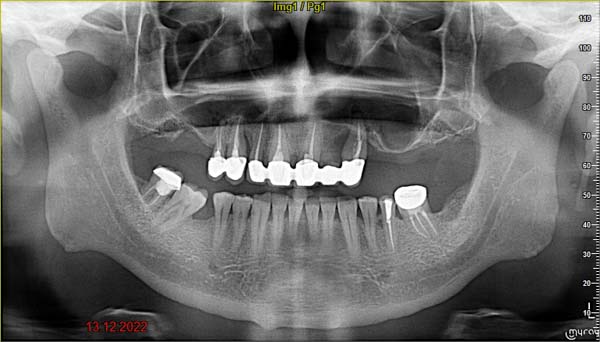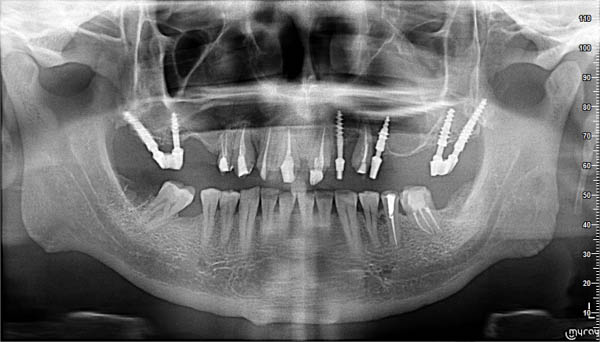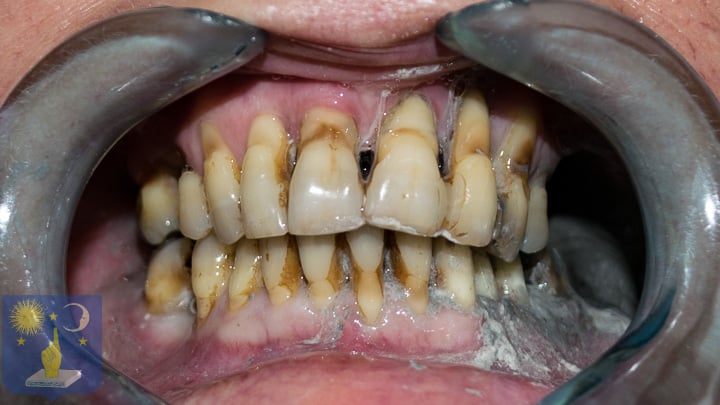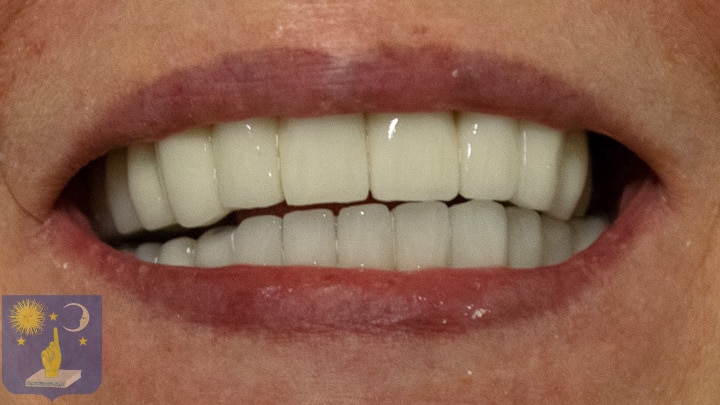How to treat gum disease
Gum disease also known as the periodontal disease can be treated with dental implants or plaque cleaning depending on the stage of the disease.

Severe gum disease is best treated with dental implants and dental bridges to stabilise the teeth. In Bulgaria there are experienced and affordable dentists who can treat gum disease effectively.
What is gum disease?
Gum disease is also called periodontal disease or periodontitis. It is an inflammation of the gum tissue around the teeth. The gums recede and the teeth loosen. Bacteria inserts itself in between the tooth and the gum tissue creating an infection. If untreated eventually it leads to the loss of the tooth. And the periodontitis spreads to the other teeth.
What are the causes of gum disease?
There are a number of contributing factors to gum infection and periodontal disease. Lifestyle choices such as smoking and diet as well as oral hygiene and general health. Age is also a factor.
Gum disease, periodontitis, can be controlled and, if treated in time, can be cured.
Severe gum disease, periodontitis, is characterised by the resorption of the gums and loosening of the teeth. Teeth begin to fall out. Over time, more teeth become loose and it leads to the partial or total loss of teeth. It is called edentulism. Tooth loss to an acceleration of bone loss, also called bone atrophy.
The stages of gum disease
The treatment of periodontal disease varies depending on the severity of the condition.
Early stage periodontal disease can be treated with good oral hygiene, healthy diet and regular cleaning of dental plaque by a dentist. Dental plaque accumulates at the base of the tooth and pushes the gums down. The dentist will remove accumulated bacteria around the base of the teeth to promote the formation of gum tissue.
If you are on holiday in Bulgaria find a dentist that can do an affordable dental cleaning and check-up.
Best treatments for severe gum disease
Late stage periodontal disease that is characterised by tooth loss can be treated with dental implants. Missing teeth can be replaced with dental implants. The implants will be capped by a dental crown. If several teeth are missing the implantologist can make a dental prosthesis bridge over several teeth and dental implants. If the remaining teeth are loose they can be bound together in a dental splint to stop them from moving.
Find the best implantologists in Bulgaria
Classic or Basal Dental Implants?
What is the best type of dental implant to treat gum disease?
To replace missing teeth you have 2 choices: conventional dental implants and basal dental implants.
Conventional Dental Implants
Conventional dental implants, also called classical implants, are a good option if you have only lost one tooth and the periodontal disease is not yet advanced. They are used for dental restorations that use the All-on-4 or All-on-6 system.
But, classical dental implants are not a suitable option for treating advanced or late stage periodontitis. Classical dental implants are short and anchored in the gum tissue, which is inflamed and receding because of periodontal disease. This spongy cancellous bone is deficient due to periodontal disease. It will not hold the conventional dental implant. An implantologist might recommend a bone graft, bone compensation or a sinus lift. But these are not effective solutions and will not resolve the problem.
Basal Implants for Gum Disease
Advanced periodontitis is best treated with basal dental implants. Late stage periodontal disease is characterised by missing teeth, edentulism, and bone loss. Basal dental implants are a better option for periodontal disease because they are longer and fixed in the cortical bone, which is not subject to resorption like the spongy cancellous bone where conventional implants are placed that is destroyed by the periodontal disease.
Find the best Basal implant dentists in Bulgaria
In basal implantology if the teeth are loose they are extracted. If some teeth are healthy they can be kept and filed. The dental implants and teeth will be covered by a full dental prosthesis bridge of 14 crowns. This prevents any movement of the teeth and helps to regenerate the bone tissue around the root of each tooth.
Basal dental implants replace missing teeth and recreate the natural functionality of the mouth. They do not require bone grafting, sinus lift or zygomatic implants that all have their disadvantages.
Basal dental implants have the additional advantage that a full dental restoration takes only 1 visit of 5 days because they are immediate loading dental implants.

Dr Genchev
Basal Implant Dentist
Dr Georgy Genchev is one of the best specialists for Full Mouth Dental Implants to treat gum disease. He specialises in patients with severe bone loss. Contact him for a consultation:
Ask for a free consultation
Request a Call Back
Fast Response
For a fast response please call Dr Genchev for free directly via WhatsApp or send him an email.
This page is sponsored by Dr Genchev.
Ask us how to sponsor content on Bulgaria Dental.

Consultation Not sure what stage of gum disease you have? Ask for a free dental consultation.

Advice Do you need advice on finding the right dentist? Ask for Help!

Analysis You have an offer from a dentist but not sure if it’s the right one for you? Ask us for help analysing the offer.
All this information is provided solely as educational content. It is not medical advice. Our aim is to clarify and democratise dental terminology and concepts relating to dentistry, stomatology and implantology. For medical advice please consult multiple qualified dentists and compare their answers.





